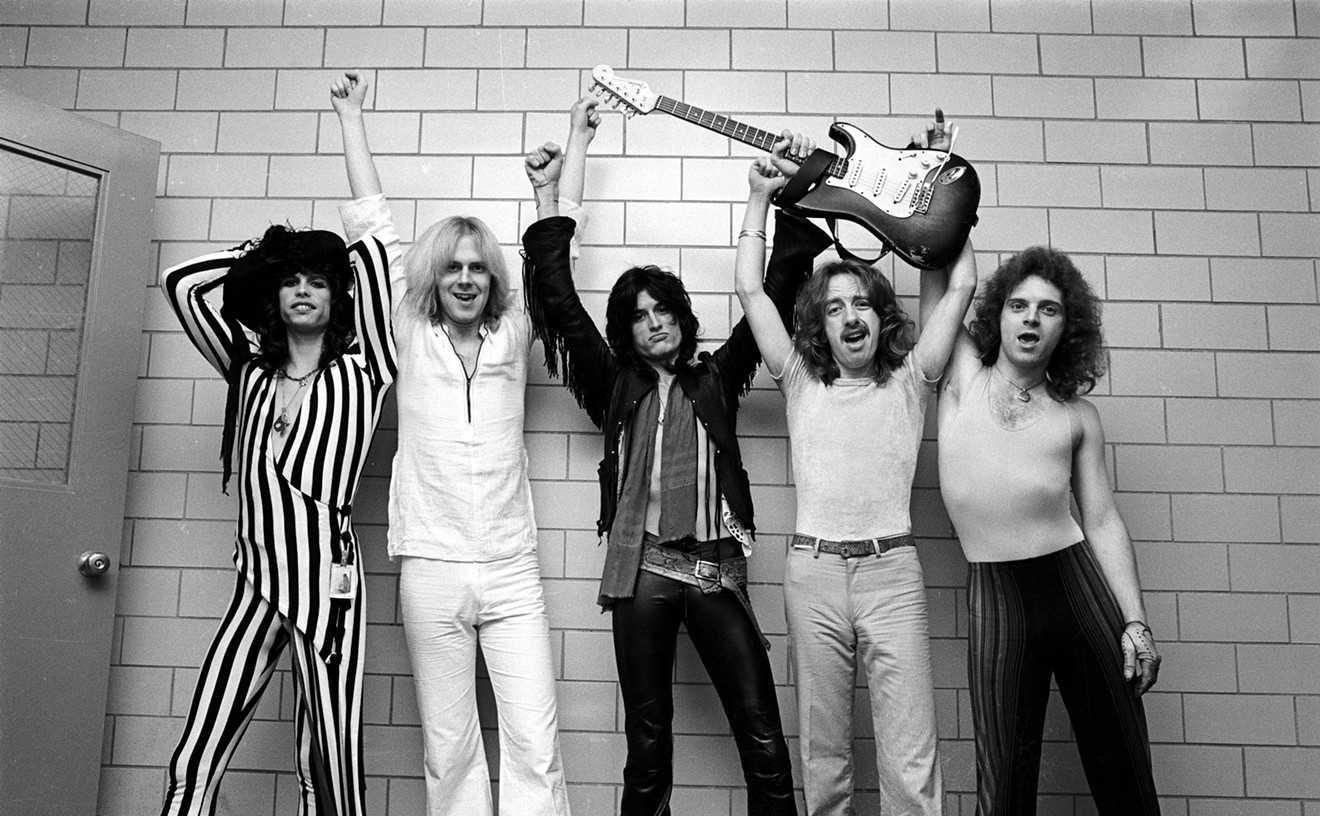I never shopped at Tower Records, the global retail chain whose story is told in actor Colin Hanks' new documentary, All Things Must Pass. My neighborhood record shop, a half-block from my childhood home, was a locally owned chain store called Hollywood Records. My late-'70s musical tastes were shaped by the staff there, and after high school I joined them as manager of the company's flagship store on Camelback Road.
Then Tower Records opened about a mile away, and they ate us for lunch.
But I watched Hanks' movie with the eye of a former insider, rather than with any residual bitterness about the olden days. Working in a record store beat the hell out of having a real job, especially if it was 1982 and you were the manager and there was no dress code. My glitter-encrusted faux-hawk might have kept me from selling cake pans or life insurance for a living, but I wasn't interested in selling anything other than the new Kraftwerk album, anyway. I wanted to be the first to hear the latest Ramones LP; to rap with the Capitol Records rep about whether the Motels would ever catch on; to convince you to buy this dance single by Madonna, a new chick singer from Detroit I kind of liked.
One hears little from the over-the-counter crowd in Hanks' entertaining new movie. The Tower customers we do hear from are superstars: Bruce Springsteen, Elton John, and Dave Grohl. It's nice to know that millionaire music legends shopped at record stores, too. But a handful of interviews with customers who aren't also international rock stars, or with the clerks who helped you score that Lacy J. Dalton 45, might have given Hanks' story a more universal appeal. Instead, we're treated to arguably more amusing tales of drinking and drugging done by the Tower upper management who dominate Hanks' talking head footage. But where are the regular Joes and Janes who helped put Tower on the map? Hanks, who is movie star Tom Hanks' son, largely ignores the clerks and customers — an unusual choice, as there are more of them in his audience than there are former Tower cognoscenti.
I'm nitpicking. But as a long-ago record store manager, I saw how clerks created relationships with the people who paid our bills. And those relationships became increasingly more important after Tower came to town. The company's first Phoenix store opened in 1979 at ChrisTown mall. (The movie Empire Records was written by Carol Heikkinen, a former employee of Tower ChrisTown.) And my little shop couldn't keep up. All the co-op advertising dollars offered by the record labels began going to Tower and, eventually, so did most of my customers. We limped along for another three or four years until Hollywood's owners pulled the plug, downsizing their 13-store chain before it got gobbled up completely by changing times. Home-taping was killing us, as were all the used record shops popping up all over town. So were Tower's mighty expansion plans.
All Things does a good job of depicting the Tower colossus, born in 1941 out of young Russ Solomon's father's Sacramento drugstore, where Solomon Jr. sold used records snagged from the guy who serviced his dad's soda fountain jukebox. Tower took off, expanding first into other California cities, then nationally, and, finally, globally.
The company's success was part timing — Solomon's first store opened just as rock albums like the Beatles' Sgt. Pepper's Lonely Hearts Club Band and the Beach Boys' Pet Sounds became events — and part small-town business savvy, because Solomon apparently left his employees alone to run his stores their way. It was timing, too, that killed Tower: Downloadable music and the death of the album dovetailed with the company's lousy business practices and a bungled corporate restructuring. The company that had suffocated so many other record store chains only a few years before was buried in a messy mélange of bad planning.
It's an oft-told tale — small-time business meets cultural explosion, expands, and implodes — that Hanks moves briskly along by focusing on the recollections of the surviving principals. The now-90-year-old Solomon is part charming huckster, part roguish cad, whose employees' stories, too many of them about backroom debaucheries for my taste, fill in the blanks left by his endless partying. There's something a little unsettling about watching these fellows, each now well into his dotage, boasting about all the broads they banged and the lines they snorted, but Hanks is telling a story about how these guys eventually upended a monster success, so these stories eventually make a larger point about the evils of excess.
Hanks makes much of the sexism that VPs say dogged the company, but my friend Lisa Sutton, who was a display artist at the Tower Westwood store in Los Angeles in the early '80s, remembers women working at every level back then. The stories of depravity are definitely true, Sutton says. She remembers a manager who was a cokehead, an assistant manager who drank his lunch. "If you knew how to ask just right, you could buy Quaaludes at our information booth," she recalls.
Like me, Sutton wishes the Tower movie covered the clerks and the kids who shopped there a little more.
"We were young adults who got paid to attend a big record party," she reminded me. "You'd say to someone, 'Listen to this Iggy Pop record,' and then Cyndi Lauper would stop by to say hello because she had a new album coming out. It's a story worth telling."
Sutton remembers selling boxes of John Lennon's Double Fantasy album the day after he was murdered; helping Mr. T shop for Martin Luther King records in the Spoken Word section; in-store appearances by the Go-Go's, Laurie Anderson, Joan Rivers. She reminded me that people who didn't know the name of the song they wanted to buy would stand there at the counter and sing it to you, and you weren't supposed to laugh at them.
All Things Must Pass does more than mine nostalgia; it tells a larger story about America and how our commerce informs our culture. It explains how a record store can revive an entire block in Manhattan, rather than really exploring the unique culture born of record stores, where kids hung out to rap about the new Tom Petty collection. It's easy to forget, in an age of Snapchat and non-stop texting, that young people wanted a cool place to go talk to like-minded people. It's probably just the former record store guy in me who wants to hear from the clerk whose job it was to stand there while some poor slob belted out REO Speedwagon's "Ridin' the Storm Out" and didn't burst out laughing.










